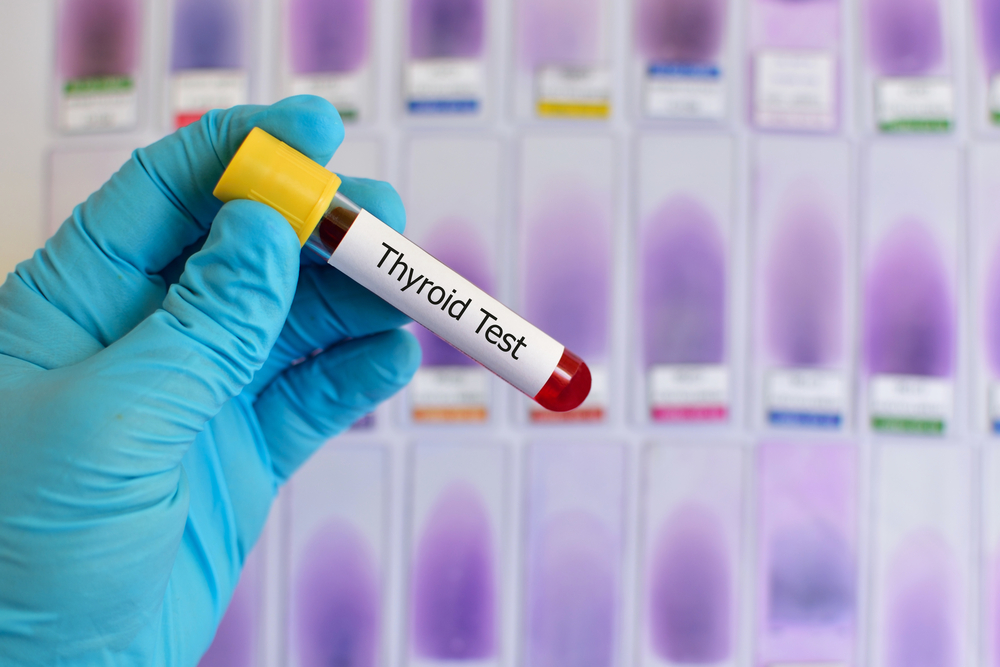Who Are You, My Dear Thyroid Gland?
Situated in the center of our throat, flanking the trachea, this gland plays a crucial role. But how many of us know that its underactive or overactive function sets our real pace? Everything you wanted to know about this tiny and elusive gland.
 Thyroid blood test (Photo: Shutterstock)
Thyroid blood test (Photo: Shutterstock)The thyroid gland, a small gland located in the center of the throat, is aptly named as it opens or closes the shutters of our joy depending on the physical state of our body. This gland is an integral part of a battery of other glands in the endocrine system responsible for hormone production and secretion into the blood.
These hormones ensure the proper functioning of complete physiological processes in the body—from maintaining heat to balancing energy levels and healthy appetite. The slightest flaw in this system disrupts these regular processes, and consequently, our peace as well.
So what are hypo- or hyperthyroidism, how to recognize their symptoms, and how to treat them? Let's bring some order to the chaos:
Hypothyroidism
How does it occur? When the gland produces too low amount of thyroid hormones.
Symptoms: Chronic fatigue, hot flashes, unexplained weight gain, brittle hair strands, muscle and joint pain, and irregular sleep.
Early diagnosis: Through blood tests. The TSH level indicates the thyroid's activity. A rate between 0.4 to 4.5 milliunits per liter (MU/L) signifies no problem, but if it reaches 10 or more, it indicates hypothyroidism.
Treatment: First, ensure you're away from any form of toxins and chemicals like chlorine, fluoride, mercury, and other harmful substances. Vapors of these toxins in contact with the thyroid gland slow down its activity. Secondly, schedule an appointment with a nutritionist to help create a new menu. Likely, many foods you consume are also harmful to the gland's activity. Lastly, don't underestimate the importance of physical activity. Regular exercise will increase your heart rate and the gland's activity.
 Thyroid blood test (Photo: Shutterstock)
Thyroid blood test (Photo: Shutterstock)Hyperthyroidism
How does it occur? When the gland produces too much thyroxine hormone due to 'extreme' processes the body undergoes, such as childbirth.
Symptoms: Circulatory system collapse (resulting in high fever and excessive sweating), sudden weight loss, tremors throughout the body, extreme hair loss, anxiety, nervousness, rapid heartbeat, and increased bowel activity.
Early diagnosis: When the TSH value in blood tests is less than four milliunits per liter.
Treatment: Do everything possible to calm the soul and body, prevent tension and worries, and immediately stop smoking for smokers. Harmful substances in cigarettes, of which nicotine is just one part, significantly slow down the gland's activity.
Important note: This article is not a substitute for medical advice, and in any case of thyroid imbalance, it is recommended to be checked by a professional.

